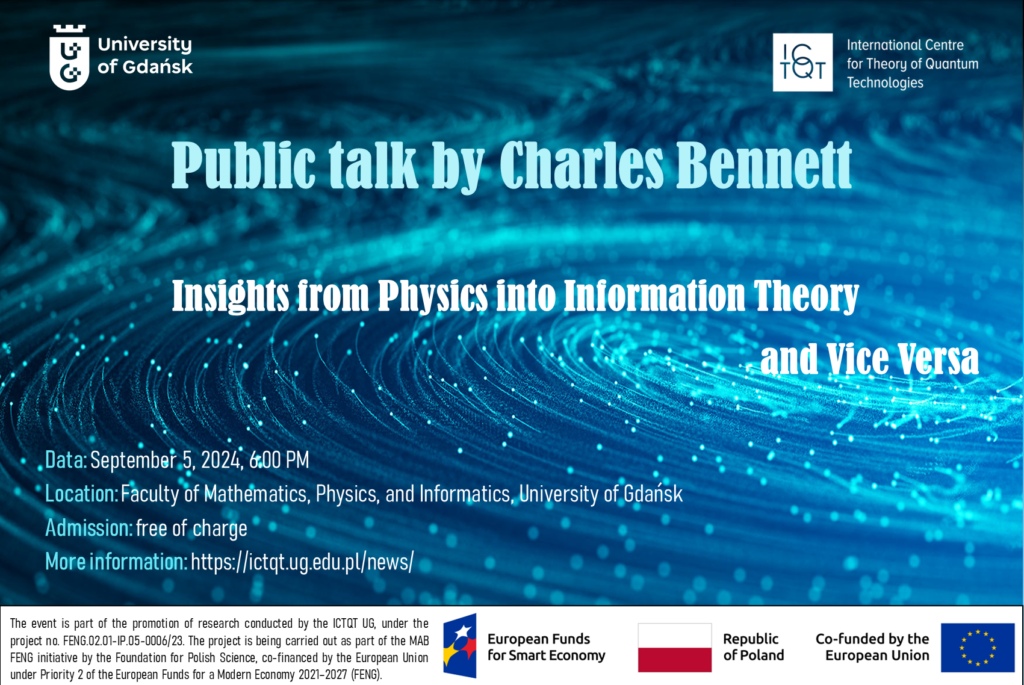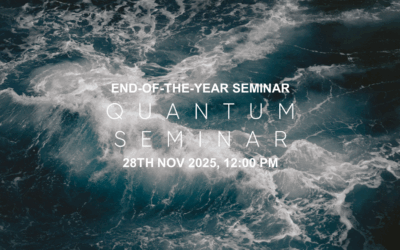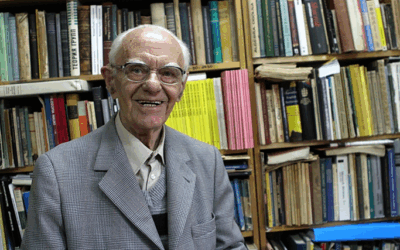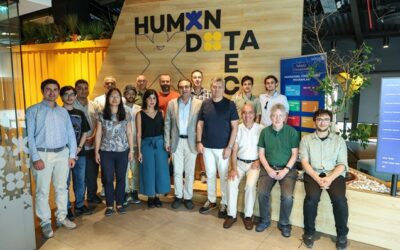Public Lecture by Professor Charles Bennett on September 5 at the University of Gdańsk
The International Centre for Theory of Quantum Technologies (ICTQT) of the University of Gdańsk is honoured to host a public lecture by the distinguished physicist, Professor Charles Bennett, on September 5 at 6:00 PM. The event will take place at the Faculty of Mathematics, Physics, and Informatics in Room D005.
Lecture Title: “Insights from Physics into Information Theory and Vice Versa”
Abstract: The information revolution got started in the mid-20th century when Turing, Shannon, and von Neumann boldly reconceptualized the processing of information as independent from its physical embodiment. In subsequent decades informatics has matured by adopting ideas from thermodynamics and quantum mechanics that physicists had mistakenly thought belonged solely to their field. The history of quantum information shows how wrong ideas can sometimes stimulate scientific progress more efficiently than correct ones, while the history of thermodynamics and information shows how good ideas can be discovered, forgotten and then rediscovered.
This event is open to the public, free of charge. We warmly invite all interested parties to join us for what promises to be an engaging and informative evening. Don’t miss this opportunity to learn from one of the leading experts in the field. We look forward to welcoming you to the University of Gdańsk!
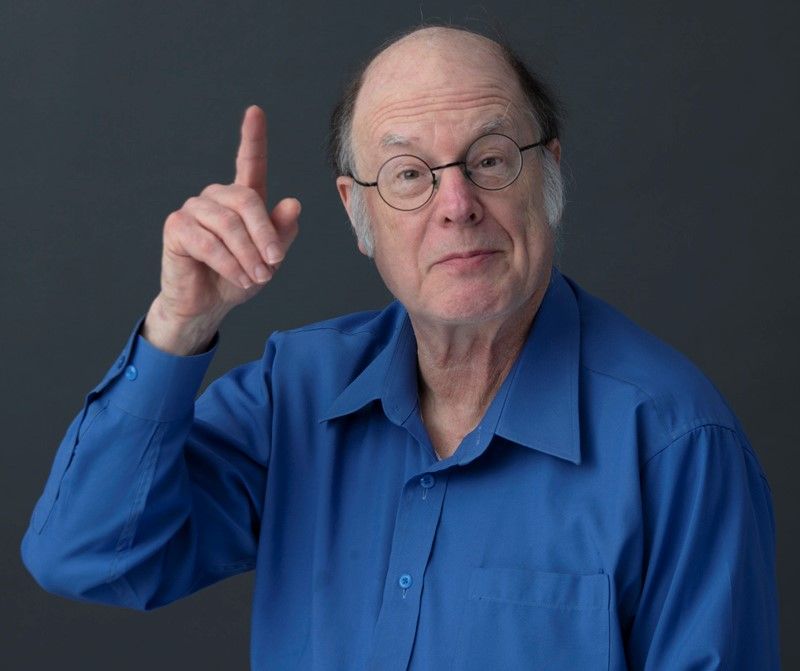
Charles H. Bennett, is physicist, information theorist and IBM Fellow at IBM Research. He holds an honorary doctorate from the University of Gdańsk, and is a member of the U.S. National Academy of Sciences and a foreign member of the Royal Society of London.
Most of his research has been on the relation between physics and information, refuting or clarifying ideas like “measurement and computation require the generation of at least a fixed amount of entropy for each bit of information acquired or processed”, and “entropy generation leads to self-organization.” He is one of the founders of quantum information theory, which extended Shannon’s classical theory of communication and Turing’s classical theory of computation to include superposition and entanglement, with a classical channel now viewed as a quantum channel with an eavesdropper, and a classical computer as a quantum computer handicapped by having eavesdroppers on all its wires. His public lectures have sought to demystify quantum mechanics, introducing analogies like “the monogamy of entanglement” and “quantum information is like the information in a dream” to help both scientists and lay people overcome the field’s radical weirdness and replace it by a mature quantum intuition.
In 1973, building on the work of IBM’s Rolf Landauer, Bennett showed that general-purpose computation can be accomplished by a thermodynamically reversible apparatus. In 1980’s, building on Wiesner’s revolutionary but impractical notion of unforgeable quantum banknotes, Bennett, with Gilles Brassard of Université de Montréal and their students, invented and implemented quantum key distribution, the earliest and most commercially mature application of quantum information processing (albeit a niche market). Beginning in the 1990s, with Brassard, Wiesner and other collaborators, he showed that, though entanglement entanglement by itself has no communication capacity, it is a useful and quantifiable resource for two now ubiquitous primitives of quantum information processing: superdense coding (which doubles a quantum channel’s classical capacity), and quantum teleportation (which enables quantum information to be transmitted over a classical channel and was cited in the 2022 physics Nobel prize). His work on entanglement distillation stimulated and benefited from the pioneering and continuing work by Gdańsk researchers on entanglement, including their unexpected discovery of “bound” kinds of entanglement that are useful but cannot be distilled into pure form.
This lecture by Professor Bennett is part of the promotion of research conducted by the ICTQT at the University of Gdańsk, under the project titled ‘International Centre for Theory of Quantum Technologies 2.0: R&D Industrial-Experimental Phase’ (contract no. FENG.02.01-IP.05-0006/23). The mentioned project aims to develop new and groundbreaking quantum technology methods and their applications. The research will focus on the advancement of quantum devices such as quantum random number generators, quantum communication links, more advanced sensors, and quantum software. The research is led by Prof. Marek Żukowski, a prominent Polish theoretical physicist specializing in the foundations of quantum mechanics. The project is being carried out as part of the MAB FENG initiative of the Foundation for Polish Science, co-financed by the European Union under Priority 2 of the European Funds for a Modern Economy 2021–2027 (FENG).

The lecture also serves as a prelude to the Q-con Conference: Shaping the Future of Quantum organized by UG (ICTQT and the Faculty of Mathematics, Physics, and Informatics) on September 6, 2024. For more information, visit https://qcon.tech/.
* Photo licensed under a CC BY-SA 2.0 license source: https://www.flickr.com/photos/ibm_research_zurich/51002548905/
